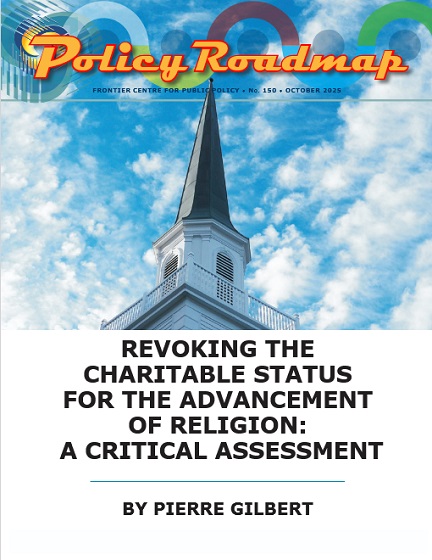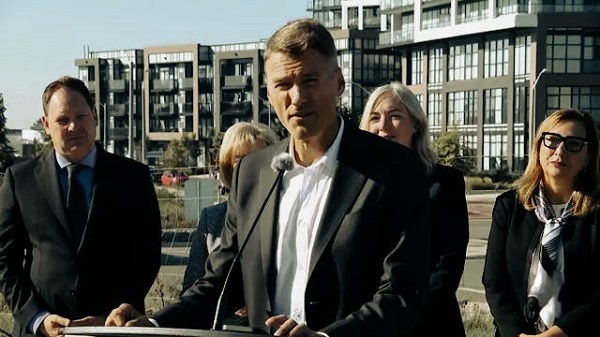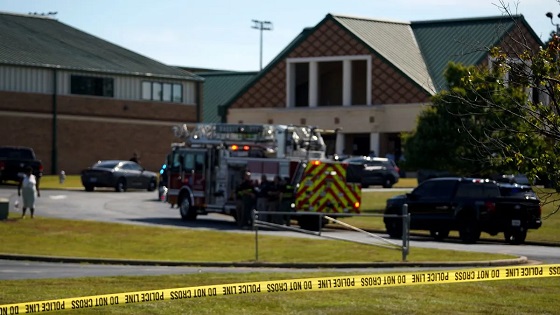Uncategorized
US trial to tell epic tale of Mexican drug lord “El Chapo”

NEW YORK — During the height of Mexican drug wars in 1993, an attempted hit on Joaquin “El Chapo” Guzman went wrong.
A team of gunmen sent to rub out the notorious drug lord instead killed a Roman Catholic cardinal at an airport in Guadalajara, outraging the Mexican public enough to touch off a massive manhunt for Guzman. He was captured, but prosecutors say he was undeterred from a brutal pursuit of power that lasted decades, featured jail breakouts and left a trail of bodies.
The story of the botched assassination will be part of an epic tale told in a tightly secured New York City courtroom starting Tuesday as prosecutors and
Guzman, who has been held in solitary confinement since his extradition to the United States early last year, has pleaded not guilty to charges that he amassed a multi-billion-dollar fortune smuggling tons of cocaine and other drugs in a vast supply chain that reached New York, New Jersey, Texas and elsewhere north of the border.
If convicted, he faces a possible life prison sentence.
Prosecutors have said they will use thousands of documents, videos and recordings as evidence, including material related to the Guadalajara airport shooting, drug smugglers’ safe houses, Guzman’s 2015 prison escape and the law enforcement operation to recapture him.
More than a dozen
Guzman’s lawyers are expected to attack the credibility of the witnesses by emphasizing their own criminal records, saying some have an incentive to lie to win leniency in their own cases.
One of Guzman’s attorneys, Eduardo Balarezo, has suggested that he hopes to convince jurors Guzman wasn’t actually in charge of the cartel but was a lieutenant taking orders from someone else.
“Now that trial is upon us, it is time to put up or shut up,” Balarezo said.
Despite his diminutive stature and nickname that means “Shorty,” Guzman was once a larger-than-life figure in Mexico who has been compared to Al Capone and Robin Hood and been the subject of ballads called narcocorridos.
Among the highlights of his lore: how he was known for carrying a gold-plated AK-47; for smuggling cocaine in cans marked as jalapenos; for making shipments using planes with secret landing strips, container ships, speedboats and even submarines.
But Guzman is perhaps best known for escaping custody in Mexico, the first time in 2011 by hiding in the bottom of a laundry bin. He escaped again in 2015 through a mile-long tunnel dug into a shower in his jail cell that he slipped into before fleeing on a motorcycle.
Guzman’s second escape was a black eye for the Mexican government, an embarrassment amplified when the actor Sean Penn was able to find and interview him at one of his hideouts in Mexico while he was on the run from authorities.
Guzman extradition to New York City shook up Mexico’s drug underworld.
Mexican security analyst Alejandro Hope said it created “something of a civil war within the Sinaloa cartel” that has essentially ended with the arrest of internal rivals and allowed his sons to take control of what remains a “weakened” but far-from-finished smuggling operation.
Hope said he has seen no sign that Guzman’s extradition and jailing in the U.S. had a major impact on drug flows or routes.
“But symbolically I think it’s important. It’s a bit of an end of an era. There are very few kingpins of that size left, of that importance,” Hope said. “We are actually leaving behind that era, the era of the kingpin.” Smaller gangs now dominate, he said.
Raul Benitez, a security expert and professor at the National Autonomous University of Mexico, said Guzman’s oversized myth has been fading, too.
In Mexico, news stories about Guzman’s trial have been prominent in the media even though it’s viewed by some as old history.
“He is totally isolated. He cannot approach anyone. His wife was not even able to approach him. So he is now out of the game,” Benitez said, referring to an order by the judge banning Guzman’s wife from hugging him in the courtroom during the trial.
Whether he is out for good will be decided by anonymous jury of seven women and five men who will decide the case. The trial is expected to last into next year.
__
Associated Press writer Peter Orsi in Mexico City contributed to this report.
Tom Hays, The Associated Press
Uncategorized
CNN’s Shock Climate Polling Data Reinforces Trump’s Energy Agenda


From the Daily Caller News Foundation
As the Trump administration and Republican-controlled Congress move aggressively to roll back the climate alarm-driven energy policies of the Biden presidency, proponents of climate change theory have ramped up their scare tactics in hopes of shifting public opinion in their favor.
But CNN’s energetic polling analyst, the irrepressible Harry Enten, says those tactics aren’t working. Indeed, Enten points out the climate alarm messaging which has permeated every nook and cranny of American society for at least 25 years now has failed to move the public opinion needle even a smidgen since 2000.
Appearing on the cable channel’s “CNN News Central” program with host John Berman Thursday, Enten cited polling data showing that just 40% of U.S. citizens are “afraid” of climate change. That is the same percentage who gave a similar answer in 2000.
Dear Readers:
As a nonprofit, we are dependent on the generosity of our readers.
Please consider making a small donation of any amount here.
Thank you!
Enten’s own report is an example of this fealty. Saying the findings “kind of boggles the mind,” Enten emphasized the fact that, despite all the media hysteria that takes place in the wake of any weather disaster or wildfire, an even lower percentage of Americans are concerned such events might impact them personally.
“In 2006, it was 38%,” Enten says of the percentage who are even “sometimes worried” about being hit by a natural disaster, and adds, “Look at where we are now in 2025. It’s 32%, 38% to 32%. The number’s actually gone down.”
In terms of all adults who worry that a major disaster might hit their own hometown, Enten notes that just 17% admit to such a concern. Even among Democrats, whose party has been the major proponent of climate alarm theory in the U.S., the percentage is a paltry 27%.
While Enten and Berman both appear to be shocked by these findings, they really aren’t surprising. Enten himself notes that climate concerns have never been a driving issue in electoral politics in his conclusion, when Berman points out, “People might think it’s an issue, but clearly not a driving issue when people go to the polls.”
“That’s exactly right,” Enten says, adding, “They may worry about in the abstract, but when it comes to their own lives, they don’t worry.”
This reality of public opinion is a major reason why President Donald Trump and his key cabinet officials have felt free to mount their aggressive push to end any remaining notion that a government-subsidized ‘energy transition’ from oil, gas, and coal to renewables and electric vehicles is happening in the U.S. It is also a big reason why congressional Republicans included language in the One Big Beautiful Bill Act to phase out subsidies for those alternative energy technologies.
It is key to understand that the administration’s reprioritization of energy and climate policies goes well beyond just rolling back the Biden policies. EPA Administrator Lee Zeldin is working on plans to revoke the 2010 endangerment finding related to greenhouse gases which served as the foundation for most of the Obama climate agenda as well.
If that plan can survive the inevitable court challenges, then Trump’s ambitions will only accelerate. Last year’s elimination of the Chevron Deference by the Supreme Court increases the chances of that happening. Ultimately, by the end of 2028, it will be almost as if the Obama and Biden presidencies never happened.
The reality here is that, with such a low percentage of voters expressing concerns about any of this, Trump and congressional Republicans will pay little or no political price for moving in this direction. Thus, unless the polls change radically, the policy direction will remain the same.
David Blackmon is an energy writer and consultant based in Texas. He spent 40 years in the oil and gas business, where he specialized in public policy and communications.
Uncategorized
Kananaskis G7 meeting the right setting for U.S. and Canada to reassert energy ties


Energy security, resilience and affordability have long been protected by a continentally integrated energy sector.
The G7 summit in Kananaskis, Alberta, offers a key platform to reassert how North American energy cooperation has made the U.S. and Canada stronger, according to a joint statement from The Heritage Foundation, the foremost American conservative think tank, and MEI, a pan-Canadian research and educational policy organization.
“Energy cooperation between Canada, Mexico and the United States is vital for the Western World’s energy security,” says Diana Furchtgott-Roth, director of the Center for Energy, Climate and Environment and the Herbert and Joyce Morgan Fellow at the Heritage Foundation, and one of America’s most prominent energy experts. “Both President Trump and Prime Minister Carney share energy as a key priority for their respective administrations.
She added, “The G7 should embrace energy abundance by cooperating and committing to a rapid expansion of energy infrastructure. Members should commit to streamlined permitting, including a one-stop shop permitting and environmental review process, to unleash the capital investment necessary to make energy abundance a reality.”
North America’s energy industry is continentally integrated, benefitting from a blend of U.S. light crude oil and Mexican and Canadian heavy crude oil that keeps the continent’s refineries running smoothly.
Each day, Canada exports 2.8 million barrels of oil to the United States.
These get refined into gasoline, diesel and other higher value-added products that furnish the U.S. market with reliable and affordable energy, as well as exported to other countries, including some 780,000 barrels per day of finished products that get exported to Canada and 1.08 million barrels per day to Mexico.
A similar situation occurs with natural gas, where Canada ships 8.7 billion cubic feet of natural gas per day to the United States through a continental network of pipelines.
This gets consumed by U.S. households, as well as transformed into liquefied natural gas products, of which the United States exports 11.5 billion cubic feet per day, mostly from ports in Louisiana, Texas and Maryland.
“The abundance and complementarity of Canada and the United States’ energy resources have made both nations more prosperous and more secure in their supply,” says Daniel Dufort, president and CEO of the MEI. “Both countries stand to reduce dependence on Chinese and Russian energy by expanding their pipeline networks – the United States to the East and Canada to the West – to supply their European and Asian allies in an increasingly turbulent world.”
Under this scenario, Europe would buy more high-value light oil from the U.S., whose domestic needs would be back-stopped by lower-priced heavy oil imports from Canada, whereas Asia would consume more LNG from Canada, diminishing China and Russia’s economic and strategic leverage over it.
* * *
The MEI is an independent public policy think tank with offices in Montreal, Ottawa, and Calgary. Through its publications, media appearances, and advisory services to policymakers, the MEI stimulates public policy debate and reforms based on sound economics and entrepreneurship.
As the nation’s largest, most broadly supported conservative research and educational institution, The Heritage Foundation has been leading the American conservative movement since our founding in 1973. The Heritage Foundation reaches more than 10 million members, advocates, and concerned Americans every day with information on critical issues facing America.
-

 Censorship Industrial Complex1 day ago
Censorship Industrial Complex1 day agoCanada’s privacy commissioner says he was not consulted on bill to ban dissidents from internet
-

 Energy2 days ago
Energy2 days agoIndigenous Communities Support Pipelines, Why No One Talks About That
-

 Alberta1 day ago
Alberta1 day agoEnbridge CEO says ‘there’s a good reason’ for Alberta to champion new oil pipeline
-

 Business1 day ago
Business1 day agoFormer Trump Advisor Says US Must Stop UN ‘Net Zero’ Climate Tax On American Ships
-

 Business2 days ago
Business2 days agoFinance Committee Recommendation To Revoke Charitable Status For Religion Short Sighted And Destructive
-

 Alberta2 days ago
Alberta2 days agoOil Sands are the Costco of world energy – dependable and you know exactly where to find it
-

 Health2 days ago
Health2 days agoColorado gave over 500 people assisted suicide drugs solely for eating disorders in 2024
-

 Business2 days ago
Business2 days ago“Nation Building,” Liberal Style: We’re Fixing a Sewer, You’re Welcome, Canada






